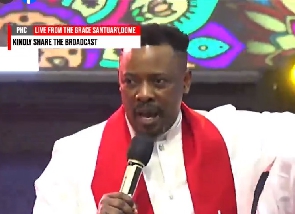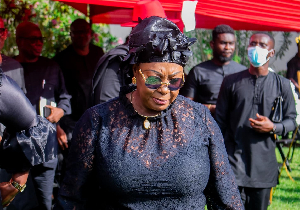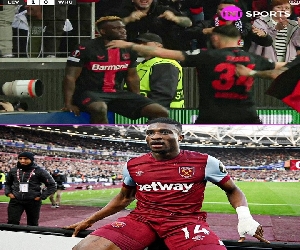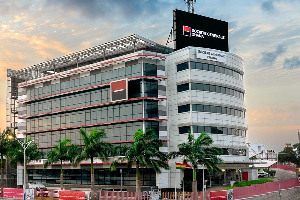Opinions of Monday, 1 January 2024
Columnist: Isaac Ofori
Decoding Nigel Gaisie: The paradox of Ghana's political prophecies
Upon reflecting on Prophet Nigel Gaisie's 31st Night prophecy, I find myself compelled to critically analyze the implications and underlying messages, particularly in the context of the country's socio-religious landscape.
It appears crucial for Ghanaians to approach such prophetic declarations with a heightened sense of discernment, especially considering the potential for misuse of influence by religious leaders.
To begin with, Nigel Gaisie's presentation style raises questions about his conviction and clarity. His demeanour, marked by apparent uncertainty and repetitive phrases, notably the assertion that Kwame Dramani will regain power, suggests a possible lack of confidence in his prophecies.
This behaviour could indicate either a genuine struggle due to his ‘claimed dry fasting’ or a deeper uncertainty about the authenticity of his messages. Such characteristics are noteworthy as they might reflect a broader issue of credibility within prophetic utterances.
Furthermore, there are apparent contradictions in Nigel's prophecies that warrant scrutiny. On one hand, he speaks of divine intervention in the political process, suggesting a preordained outcome. Yet, he simultaneously urges action and vigilance from Ghanaians, particularly in support of Mahama and the NDC.
This juxtaposition of divine determinism with a call for human action presents a theological paradox. It raises the question of whether these prophecies are divinely inspired or are being used as a tool for political influence or temper with public opinion.
The prophet's vision of a horse rider, draped in the Ghanaian flag, introduces another layer of complication. While this could be interpreted as a symbolic representation of political leadership, the subsequent warning against supporting or voting for this figure, possibly Bawumia the NPP's leader, contradicts earlier positive indications about the year 2024.
Such inconsistencies not only undermine the coherence of the prophecies but also suggest a possible manipulation of religious narratives for political ends.
In light of these observations, it is prudent for Ghanaians to approach such prophecies with caution. The introduction of conditional statements ("if situations") in what is presented as divine prophecy further complicates the matter.
It implies that the fulfillment of these prophecies, that is NDC and Kwame Dramani winning and regaining political power, is contingent upon human actions, which contradicts the notion of an omnipotent divine will. This inconsistency could be seen as an attempt to influence political outcomes under the guise of spiritual guidance.
While acknowledging the role of faith and spirituality in guiding personal and collective decisions, individuals need to exercise critical thinking and not blindly follow charismatic prophecies. The potential for these messages to be used for political manipulation cannot be overlooked.
As such, it is advisable for political parties, like the NPP, to focus on tangible policies and governance strategies that benefit the populace, rather than relying on prophetic endorsements. Ultimately, the responsibility for political decision-making should rest with the informed electorate, guided by rational thought and democratic principles, rather than solely on prophetic declarations.













